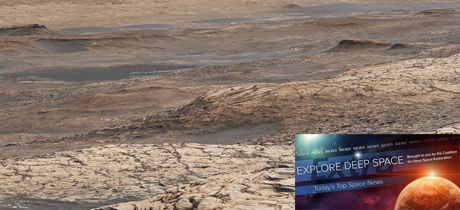In Today’s Deep Space Extra… NASA confirms Russian ASAT test has doubled the risk of debris penetrating the International Space Station. Israel to sign the Artemis Accords. Federal budget standstill having ‘ripple effects’ on national security space missions.
Human Space Exploration
NASA confirms Russian ASAT test doubled debris risk to ISS
Spacepolicyonline.com (1/18): A surprise November 15, 2021 Russian anti-satellite test (ASAT) has doubled the risk of an orbital debris strike penetrating the International Space Station (ISS), Robyn Gatens, NASA’s ISS program director, told the NASA Advisory Council’s Human Exploration and Operations Committee on Tuesday. The threat of a piece of debris from the satellite breakup penetrating the orbital science laboratory has now doubled to one chance in every 25,000-33,000 orbits of the Earth, compared to one in 50,000 orbits prior to the test.
Cosmonauts begin Russian spacewalk to integrate new ISS module
NASASpaceflight.com (1/19): Russian cosmonauts Anton Shkaplerov and Pyotr Dubrov are conducting a spacewalk outside the International Space Station (ISS) to configure and integrate the Nauka Multipurpose Laboratory Module. The spacewalk began at 7:17 a.m. EST and is scheduled to last about seven hours. It is being livestreamed on NASA TV.
Israel to sign Artemis Accords
SpaceNews.com (1/18): Israel is prepared to sign the U.S. sponsored Artemis Accords, a set of best practices among nations joining with NASA for the future human exploration of deep space destinations, including the Moon and Mars. Israeli Foreign Minister Yair Lapid announced the country’s intention to sign the accords using social media. A signing ceremony could happen during the week of January 23. Israel would become the 15th country to sign the Accords.
Space Science
Possible sign of Mars life? Curiosity rover finds ‘tantalizing’ Red Planet organics
Space.com (1/18): A new study suggests that NASA’s Curiosity Mars rover, which touched down in the 96-mile-wide Gale Crater on the Red Planet in August 2012, has detected organic carbon compounds that on Earth would be linked to biological activity. The Martian samples were gathered by Curiosity and sampled between August 2012 and July 2021. The findings were published in the Proceedings of the National Academy of Sciences.
NASA and HeroX want to convert waste in space and monitor air-quality here on Earth
Universetoday.com (1/18): NASA and HeroX announced a pair of crowdsourcing competitions on Tuesday, one that seeks ideas on how to recycle packaging and wrapping materials and human waste products on future human expeditions to Mars into spare parts, propellant and other exploration assets. A second crowdsource competition seeks proposals for processing satellite data on air pollutants, specifically nitrogen dioxide, and small particulates to provide publicly available assessments, especially to those in large susceptible urban areas. Open to individuals and teams of contestants 18 years and older, the two competitions offer multiple prizes totaling $24,000 and $50,000.
Other news
Federal budget stalemate having ‘ripple effects’ on national security space missions
Coalition Member in the News – United Launch Alliance
SpaceNews.com (1/18): The U.S. federal government has been without a budget since the 2022 fiscal year began on October 1, 2021. Congress and the White House agreed to a continuing budget resolution that locks in 2021 programs and spending through February 18. However, the longer lawmakers go without a formal budget for 2022, the more likely it becomes that the launch of important national security space missions could be delayed, Gen. John “Jay” Raymond, the Space Operations Chief for the U.S. Space Force, told a Mitchell Institute gathering.
China’s Landspace appears to be preparing to launch its new methane-fueled rocket
SpaceNews.com (1/18): Satellite imagery and social media posts suggest that China is preparing for the premier launch of the new methane fueled Zhuque-2 rocket from the Jiuquan Satellite Launch Center in northwest China, perhaps in the first quarter of 2022. “The inaugural Zhuque-2 mission could be the first orbital launch attempt of a rocket using a methane-liquid oxygen propellant mix,” SpaceNews.com reports.
After six decades, Russia will build its final Proton rocket this year
Arstechnica.com (1/18): Roscosmos, the Russian space agency, has sanctioned the assembly of four more Proton rockets. Ten of the powerful rockets remain in Russia’s current launch vehicle inventory. It is Russia’s plan to transition previous Proton payloads to the new Angara-A5 rocket over a five-year period.

